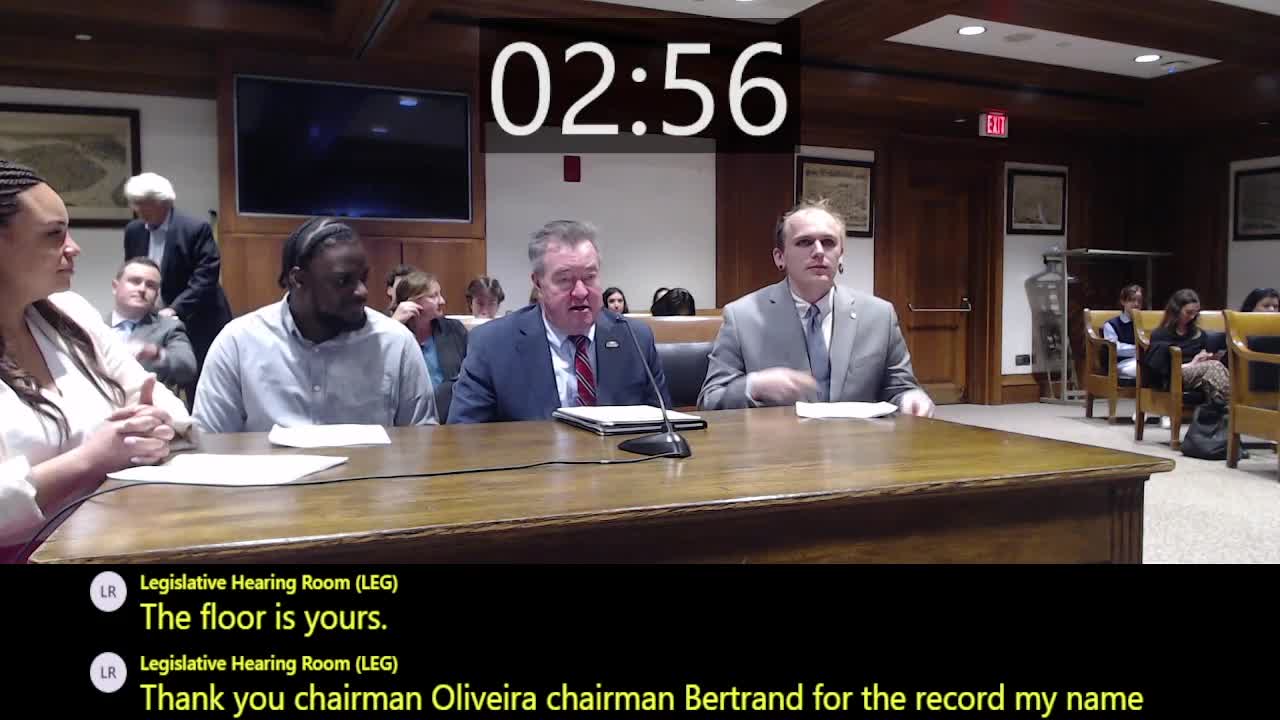Massachusetts Trade Leaders Support Legislation for Apprentice Training on Public Projects
June 10, 2025 | 2025 Legislature MA, Massachusetts
This article was created by AI summarizing key points discussed. AI makes mistakes, so for full details and context, please refer to the video of the full meeting. Please report any errors so we can fix them. Report an error »

Massachusetts is taking significant steps to enhance workforce development in the construction industry, as highlighted during a recent meeting of the Joint Committee on Labor and Workforce Development. Key discussions centered around two pivotal pieces of legislation: Senate Bill 1303 and House Bill 2085, which aim to bolster apprenticeship opportunities for aspiring construction workers.
The proposed legislation mandates that public construction projects exceeding one million dollars must employ apprentices, ensuring that the next generation of skilled workers receives essential on-the-job training. This initiative is crucial, as many apprentices currently face challenges progressing through their training due to a lack of available work. By implementing a structured requirement for apprentices on large projects, the legislation seeks to create a sustainable pipeline of skilled labor, benefiting both the industry and the workers.
Support for the bills came from leaders within the Massachusetts Building Trade Unions, representing over 75,000 construction workers. They emphasized that the legislation would not only provide valuable training opportunities but also promote fair wages and working conditions for all workers in the construction sector.
Renee Dozier, a licensed electrician and business agent with IBW Local 103, also voiced her support for maintaining strict licensing laws and apprenticeship ratios in the electrical trade. She highlighted the dangers of unlicensed work, citing past incidents where inadequate training led to tragic outcomes. Dozier argued that Massachusetts' rigorous standards are essential for ensuring safety and quality in electrical work, and any attempts to deregulate these standards could jeopardize public safety.
The discussions at the meeting underscored a collective commitment to fostering a skilled workforce in Massachusetts, with a focus on training and safety. As the state moves forward with these legislative efforts, the implications for the construction industry and its workers are expected to be profound, paving the way for a more robust and capable workforce.
The proposed legislation mandates that public construction projects exceeding one million dollars must employ apprentices, ensuring that the next generation of skilled workers receives essential on-the-job training. This initiative is crucial, as many apprentices currently face challenges progressing through their training due to a lack of available work. By implementing a structured requirement for apprentices on large projects, the legislation seeks to create a sustainable pipeline of skilled labor, benefiting both the industry and the workers.
Support for the bills came from leaders within the Massachusetts Building Trade Unions, representing over 75,000 construction workers. They emphasized that the legislation would not only provide valuable training opportunities but also promote fair wages and working conditions for all workers in the construction sector.
Renee Dozier, a licensed electrician and business agent with IBW Local 103, also voiced her support for maintaining strict licensing laws and apprenticeship ratios in the electrical trade. She highlighted the dangers of unlicensed work, citing past incidents where inadequate training led to tragic outcomes. Dozier argued that Massachusetts' rigorous standards are essential for ensuring safety and quality in electrical work, and any attempts to deregulate these standards could jeopardize public safety.
The discussions at the meeting underscored a collective commitment to fostering a skilled workforce in Massachusetts, with a focus on training and safety. As the state moves forward with these legislative efforts, the implications for the construction industry and its workers are expected to be profound, paving the way for a more robust and capable workforce.
View full meeting
This article is based on a recent meeting—watch the full video and explore the complete transcript for deeper insights into the discussion.
View full meeting
